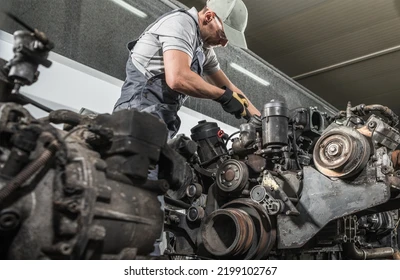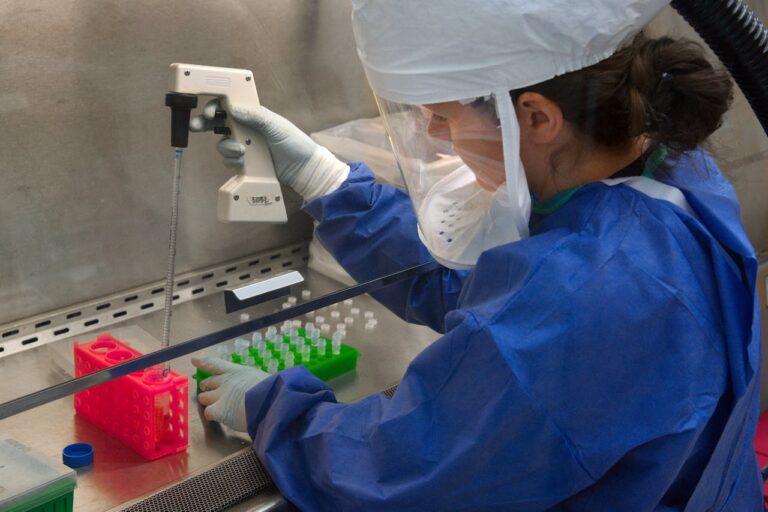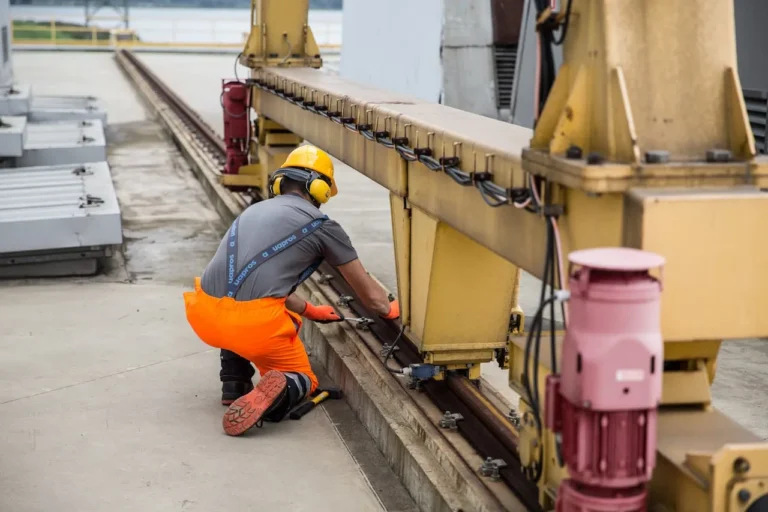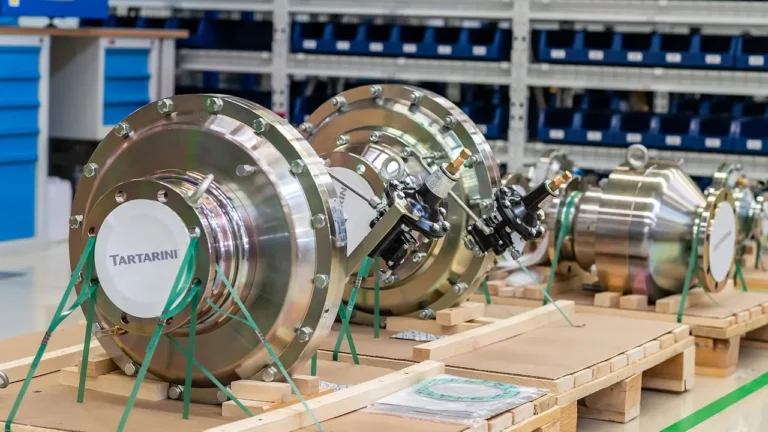
How to Launch a Successful Career as a Certified Diesel Technician
Are you captivated by the mechanics of powerful diesel engines? Do you find yourself drawn to the precision, complexity, and sheer capability of heavy-duty trucks and equipment? If so, a career as a diesel technician may be the ideal path for you. Not only does it offer a hands-on, engaging work environment, but it also promises job stability, advancement opportunities, and the satisfaction of solving real-world technical challenges.
At Cummins, we understand the value diesel technicians bring to industries ranging from transportation and logistics to agriculture and construction. That’s why we’re committed to supporting aspiring professionals with the knowledge, training, and experience they need to succeed. In this comprehensive guide, we’ll take you through every step of the journey to becoming a certified diesel technician—from education and training to specialization and career advancement.
What Does a Diesel Technician Do?
Before diving into the specific steps, it’s important to understand the core responsibilities of a diesel technician. These professionals specialize in inspecting, diagnosing, repairing, and maintaining diesel-powered vehicles and equipment. Diesel engines are commonly found in trucks, buses, construction machinery, agricultural equipment, and even generators.
A diesel technician’s daily work involves more than just turning wrenches. They use advanced diagnostic tools to identify engine and electronic system problems, interpret fault codes, and implement precise repairs. This role requires both mechanical aptitude and digital fluency, especially as vehicles become increasingly complex.
Key Skills for a Successful Diesel Technician
To excel in this field, a solid mix of technical knowledge, hands-on ability, and interpersonal skills is essential. Here are some of the most important attributes and competencies for diesel technicians:
- Technical Expertise: Deep knowledge of diesel engine systems, fuel injection, emission controls, brake systems, and electrical components.
- Problem-Solving Skills: The ability to diagnose and troubleshoot a wide variety of mechanical and electronic issues efficiently.
- Attention to Detail: Precision matters in this profession—small errors can lead to major mechanical failures or safety concerns.
- Communication Skills: Technicians must clearly explain technical issues and repair strategies to customers, supervisors, or team members.
- Physical Stamina: Working with heavy equipment and tools often requires strength and endurance.
Step-by-Step Guide to Becoming a Certified Diesel Technician
Let’s break down the journey into actionable steps that can take you from a diesel enthusiast to a certified, in-demand professional.

Step 1: Complete High School or Obtain a GED
Your first step is to earn a high school diploma or an equivalent credential (such as a GED). Focus on courses in mathematics, physics, computer technology, and shop or automotive classes. These subjects provide a foundation for understanding the mechanical and electronic systems you’ll encounter as a diesel technician.
Step 2: Enroll in a Diesel Technology Program
After high school, the next step is formal training through a diesel mechanic or diesel technology program. These programs are available at technical schools, vocational training centers, and community colleges.
A good program will cover core topics such as:
- Diesel engine repair
- Transmission systems
- Electrical and electronic diagnostics
- Air conditioning and refrigeration systems
- Brake and suspension systems
For the best results, look for programs accredited by the National Automotive Technicians Education Foundation (NATEF) or the Automotive Service Excellence (ASE) Education Foundation. These accreditations signal that the curriculum meets industry standards and is respected by employers.
Step 3: Gain Practical, Hands-On Experience
While theoretical knowledge is important, hands-on experience is what truly prepares you for the demands of the job. Many diesel technology programs include internship or apprenticeship opportunities that allow students to work directly with seasoned professionals in real-world environments.
At Cummins, we believe in “learning by doing.” That’s why we actively partner with technical institutions and training centers to provide hands-on training through internships and cooperative education programs. Working on actual diesel engines and systems helps bridge the gap between classroom theory and on-the-job performance.
Step 4: Obtain Industry Certification
Certification is a critical milestone in your professional journey. It proves your competence and signals to employers that you meet high industry standards. The most recognized certification for diesel technicians is issued by the National Institute for Automotive Service Excellence (ASE).
To earn ASE certification, you’ll need to:
- Accumulate a certain amount of hands-on work experience or complete a qualifying training program
- Pass a series of rigorous exams in diesel engine repair, electrical/electronic systems, brakes, and more
ASE-certified technicians are often preferred by employers and may enjoy higher salaries, greater job opportunities, and access to advanced roles.
Step 5: Choose an Area of Specialization
As you gain experience, consider focusing your skills in a specific area. Specializations allow you to deepen your expertise and command a premium in the job market. Some popular specializations include:
- Heavy-Duty Truck Systems
- Hydraulics and Powertrains
- Fuel Injection and Emissions Control
- Electronic Diagnostics and Control Modules
Specializing can open doors to higher-paying roles or niche industries such as mining, marine engines, or emergency power generation.
Step 6: Pursue Master-Level Certification
For technicians seeking to maximize their career potential, achieving Master Diesel Technician Certification is an excellent goal. This advanced credential is awarded by ASE to those who pass exams in multiple areas of diesel technology.
Master-certified technicians often move into supervisory, training, or technical leadership roles and are well-positioned for long-term career growth. It’s a powerful way to demonstrate your commitment to excellence in the field.
Step 7: Engage in Lifelong Learning
Diesel technology is constantly evolving. From cleaner emissions systems to smart diagnostics and digital monitoring tools, staying current with new technologies is essential. Many manufacturers—including Cummins—offer ongoing training programs, webinars, and workshops to help technicians stay at the top of their game.
Continuing education isn’t just a good idea—it’s often required to maintain certifications and remain competitive in the workforce.
How to Choose the Right Diesel Technician Program
Not all training programs are created equal. Here are some key factors to consider when selecting your educational path:
- Accreditation: Confirm the program is recognized by industry-standard organizations.
- Curriculum Breadth: Ensure the program covers all core diesel systems.
- Hands-On Opportunities: Look for internships, co-ops, or lab components.
- Reputation: Research graduate outcomes, employer reviews, and alumni success stories.
- Industry Connections: Programs partnered with companies like Cummins offer excellent career advantages.
Career Opportunities and Pathways
Once you’re certified, the career options are plentiful and diverse. Certified diesel technicians can find rewarding roles in:
- Commercial truck fleet maintenance
- Heavy construction equipment repair
- Agricultural machinery service
- Marine and power generation systems
- Public transportation and school districts
With experience, many technicians move into supervisory roles, technical training, or even open their own diesel repair businesses.
Cummins: Your Partner in Career Success
Cummins is more than a leading engine manufacturer—we’re a career partner for technicians around the globe. Through our training initiatives, internship partnerships, and continuing education programs, we help technicians of all experience levels reach their full potential. Our facilities and learning programs are designed to equip technicians with the skills they need today and the adaptability they’ll need tomorrow.
Ready to Turn Passion into a Career?
Becoming a certified technician is more than just a job—it’s a pathway to a rewarding, hands-on career with real impact. Whether you’re starting out after high school or making a mid-career change, the journey offers countless opportunities for growth, specialization, and financial stability.
Start your journey today with the right training, a commitment to learning, and the drive to succeed. The world of technology is waiting—and it needs skilled professionals like you to keep it moving.




